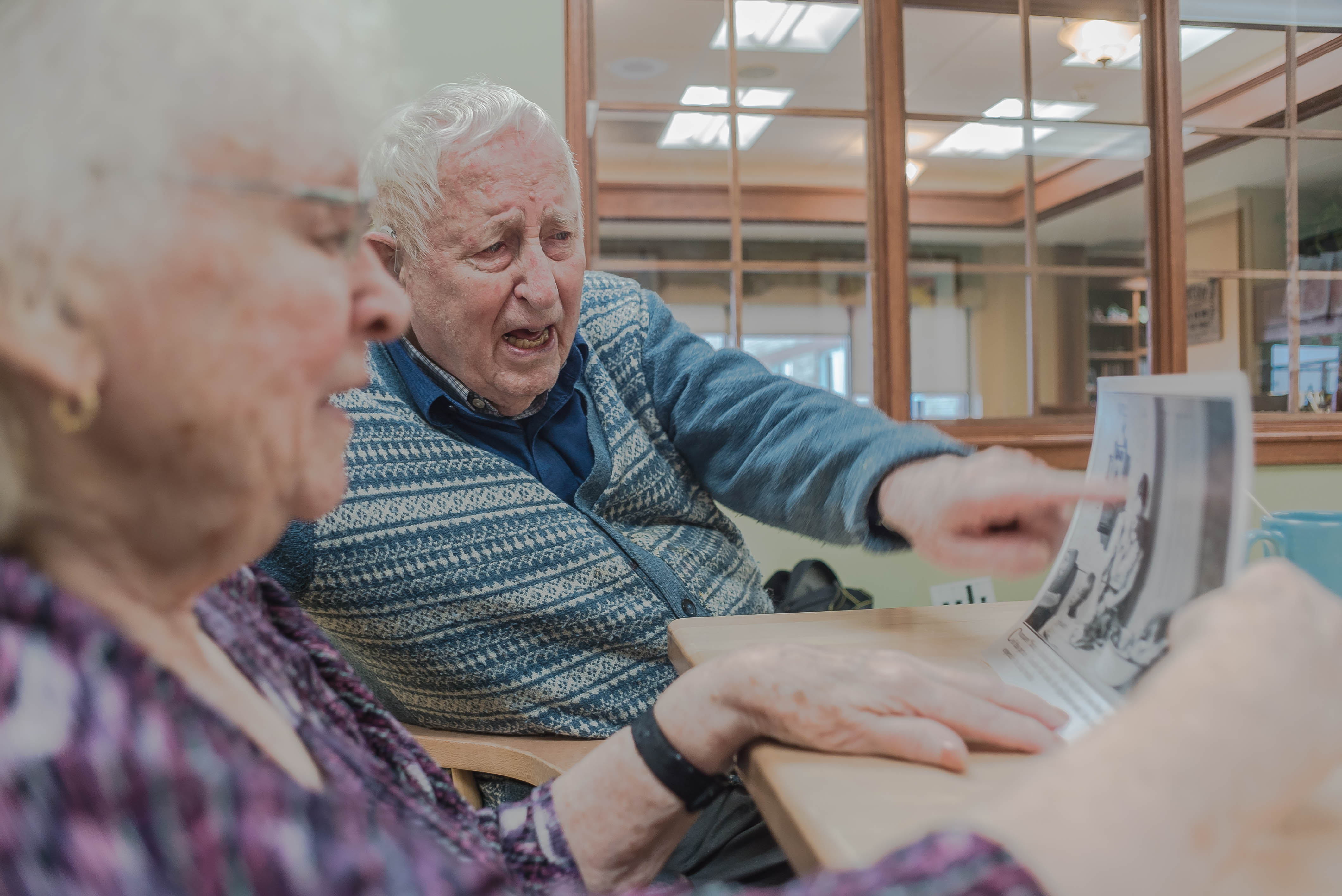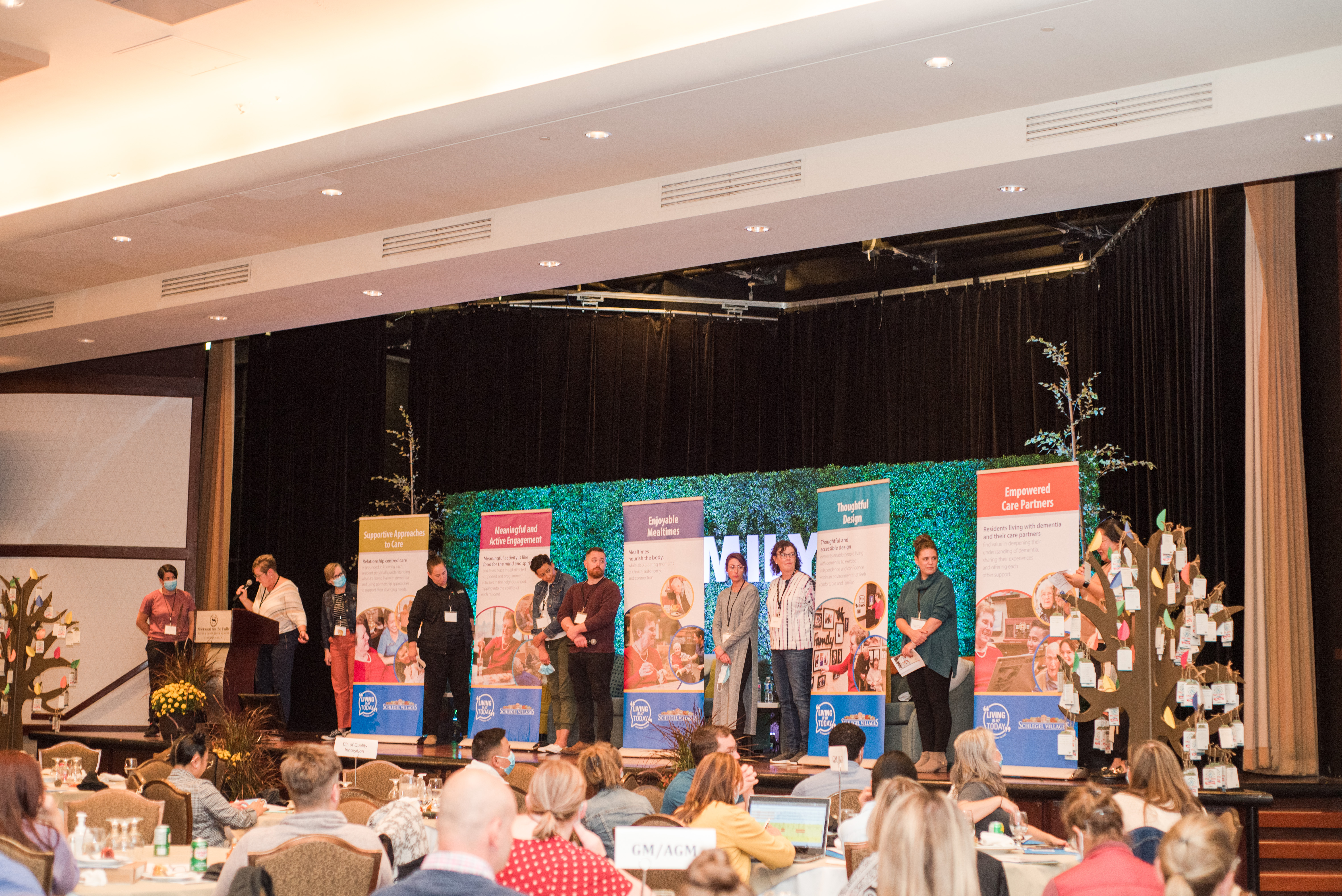As our communities face the complexities that come with aging, more people are trying to understand the impact of dementia. It’s a word many have heard, yet few understand, so to honour Alzheimer’s Awareness Month in January, Schlegel Villages connected with two leading researchers in the field to talk about our changing understanding of dementia.
Dr. Carrie McAiney is the Schlegel Research Chair in Dementia with the Research Institute for Aging in Waterloo and the Scientific Director of the Murray Alzheimer Research and Education Program
Dr. Allen Power is the RIA’s Schlegel Chair in Aging and Dementia Innovation and the author of two highly-respected books, Dementia Beyond Drugs: Changing the Culture of Care and Dementia Beyond Disease: Enhancing Well-Being.

Dr. Carrie McAiney

Dr. Allen Power
We sincerely thank them for sharing their thoughts with us.
SV: Can you please describe the connection between Alzheimer’s disease and the wider scope of dementia?
Al Power: I always explain that dementia is not a specific disease, but a "syndrome" – a collection of symptoms that have many causes and may vary with each person. It is believed that there are well over 100 different diseases or injuries that can cause a dementia syndrome; of all of these, the one that is felt to occur most commonly is the one we call Alzheimer's disease. So, I often say that if dementia were all the kinds of soda pop in the world, Alzheimer's would be Coca Cola; it's just one kind, but it's the most common kind.
Carrie McAiney: Many times, a specific dementia diagnosis (e.g., Alzheimer's disease, vascular disease) is not made. Instead, the diagnosis is often "dementia". Therefore, if we focus only on Alzheimer's disease, there's the possibility that we are excluding people, or that those without a specific diagnosis feel excluded. The key is to be inclusive and to help people understand that dementia is a syndrome.
Within the broader public, there is still a lack of knowledge or understanding about what dementia is and what it means to have dementia. Along with this lack of knowledge comes fear – many people fear being diagnosed with dementia, and may also fear associating with those with dementia.
Al Power: The different kinds of dementia have widely different causes. So, if a drug is developed that helps treat the symptoms of Alzheimer's, it may very well not work for the many people who have other forms. Different types of dementia can have different kinds of symptoms as well, so only seeing everyone as if they have Alzheimer's may miss some important differences in what people are experiencing or knowing how best to support them.
Even people with Alzheimer's are unique in how they experience or express the symptoms of the disease; there is no 'formula' for what a person with Alzheimer's will feel like or look like. I think that using the more general term 'dementia' helps us to avoid stereotypes and to look at each person as a unique individual, so that we individualize our approach to each person's support and care.
SV: What do you think is the best thing that can happen in terms of public perception if we create awareness of a new dementia narrative focused not on what may be lost after a diagnosis, but on what is still possible?
Carrie McAiney: There are so many benefits that can come from changing the narrative to one of possibility versus deficits. People will understand that those living with dementia can still contribute; this may be in terms of decisions about their lives, the things they prefer to do or decisions about their care. This could also include things like participating in research as co-researchers, not just research participants, or in developing programs, contributing to policy, and in advocacy work. There are a growing number of individuals living with dementia that are "showing" us what they can do and the difference they can make. There is a possibility (when we change the narrative) that the public will not make assumptions about what people can and can't do. Providing more opportunities for those with dementia to contribute will have significant impacts for everyone.
Al Power: When we focus only on what is wrong or missing with people, we fail to understand what intact strengths and abilities people have, in spite of their condition. These abilities can be harnessed to help each person to engage more fully and to maximize their well-being. Only seeing people for their deficits magnifies the stigmas of dementia and causes us to 'sell people short' in judging what they may be able to do. This can create self-fulfilling prophecies, in which we don't provide an environment where people can reach their potential and then, when they don't, it reinforces our stigmas and low expectations.
- Previous
- View All News
- Next



